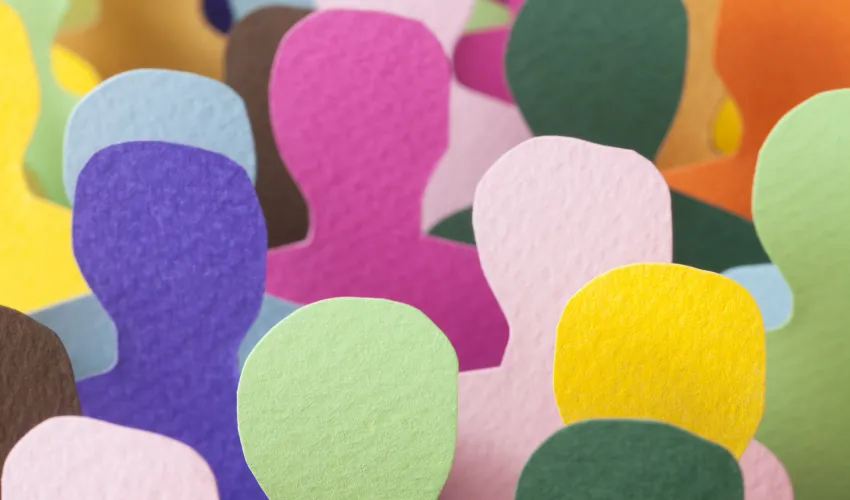
Full Speed Ahead Towards Inclusion
With students, faculty, staff and alumni from all over the world, diversity is integral to Bocconi's ethos. The new Inclusive Gender Equality Plan shows that the university has come a long way on the road to inclusion, and that the 2021-2025 Strategic Plan will accelerate diversity and inclusion in the years to come.
The Inclusive Gender Equality Plan underlines the strategic importance of promoting diversity and inclusion within the entire Bocconi community, providing a snapshot of the current situation, while at the same time laying the foundation for where efforts should be directed in the near future. All based on a basic principle: diversity is a fact, while inclusion is a practice. It depends on the everyday choices and actions of each one of us.
"This Plan underscores Bocconi University's continuous determination to pursue our core research and educational objectives in a physical and intellectual context where all members of our community receive – and offer to others – equality of opportunity and treatment," says Catherine De Vries, Bocconi Dean of Diversity and Inclusion.
The Plan highlights that the percentage of women has been increasing in the Bocconi community. In the 2020-2021 academic year, 42% of students are women as well as 31% of faculty, with the aim of increasing it to 35% by 2025. The percentage of women among staff members is 75%.
The percentage of international students has been increasing steadily at Bocconi (between 2017-2018 and 2019-2020 there was an increase from 16% to 19%, with students coming from more than 100 countries). Looking at the individual schools that make up Bocconi, this percentage ranges from 2% in the School of Law, 19% and 21% in the Undergraduate and Graduate Schools, up to 42% in SDA Bocconi and 52% in the PhD School. The percentage of international faculty has also increased: today they represent 20% of the total, with the Strategic Plan's goal to increase to 30% by 2025. Among staff members, the percentage of non-Italians and Italians with international experience is 27% overall.
In the 2020-2021 academic year, the number of students with disabilities or learning disorders was 256, compared to 89 in 2016-2017.
Regarding social inclusion the University's is committed to its role as a social elevator. Data relating to financial support for students suggest that there were more than 4500 awards in the 2019-2020 academic year, including financial aid and scholarships.
The Inclusive Gender Equality Plan highlights several new initiatives in the area of social inclusion. One of the most important is the Bocconi Carriera Alias program, introduced starting in January 2022. It is a temporary profile for transgender students, which allows them to be registered by the University with a chosen name instead of their legal name, pending the conclusion of the bureaucratic and legal process for gender reassignment.
Moving forward, the Inclusive Gender Equality Plan underlines the need to continue increasing gender and ethnic diversity within all areas of the community, and continue increasing initiatives to support and promote gender and cultural diversity, as well as raising awareness of LGBTQIA+ issues. For the promotion of LGBTQIA+ and gender diversity, the Inclusive Gender Equality Plan also stresses the importance of increasing role models on campus.
Finally, mental health and wellbeing are also important aspects, that were severely put to the test during the Pandemic, in particular among students (as also underlined by a survey carried out among students and reported in the document). In years to come, the university will expand its efforts to support mental wellbeing of students, faculty and staff through courses, additional counselling and other initiatives.
"Ensuring that all Bocconi students, faculty and staff members have the same chance to thrive, regardless of gender, gender identity, religion, national origin, ethnicity, socio-economic background, sexual orientation, disability or mental health needs, is something that benefits our entire community", conclude De Vries. "To embed diversity and inclusion within our culture, we all need to carefully consider diversity and inclusion in our activities."